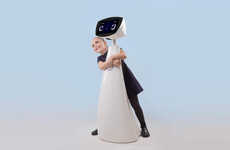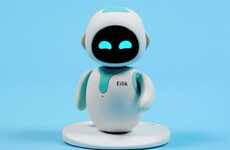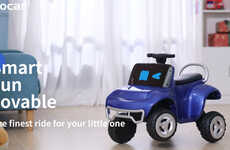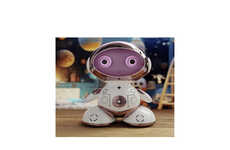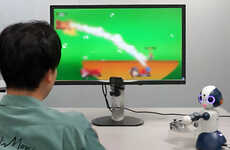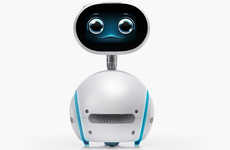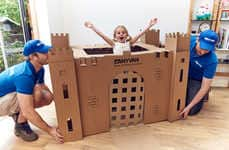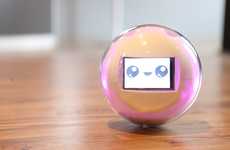
This Robot Companion Helps Children with Developmental Disorders
Mishal Omar — May 16, 2016 — Life-Stages
References: digitaltrends & livescience
This rolling robot is called 'Leka' and is designed to provide a robot companion for autistic children.
The robot has a face that changes expressions and can use sound, light and colors to interact with children. It features customizable games that improve cognitive and motor skills. As autistic children often have issues with social interactions, the interactive aspects of this technology hopes to improve their ability to interact with people. The robot companion will also be trustworthy and reliable for autistic children who offer rely on patterns to feel safe.
The robot companion has adjustable levels of stimulation and difficulty times, as well as the capacity to track progress in the child's abilities.
The robot has a face that changes expressions and can use sound, light and colors to interact with children. It features customizable games that improve cognitive and motor skills. As autistic children often have issues with social interactions, the interactive aspects of this technology hopes to improve their ability to interact with people. The robot companion will also be trustworthy and reliable for autistic children who offer rely on patterns to feel safe.
The robot companion has adjustable levels of stimulation and difficulty times, as well as the capacity to track progress in the child's abilities.
Trend Themes
1. Interactive Robot Companions for Developmental Disorders - Developing customizable, interactive robot companions that can improve cognitive and motor skills for children with developmental disorders.
2. Emotionally Intelligent Robotics - Creating emotionally intelligent robots, like Leka, that can change expressions and use sound, light and colors to interact with people of different developmental abilities.
3. Personalized Learning Through Robotics - Using robotics to create personalized learning experiences for children with developmental disorders, using adjustable levels of stimulation and difficulty times as well as tracking progress in the child's abilities.
Industry Implications
1. Education Technology - The education industry can leverage this technology to create personalized learning experiences for children with developmental disorders.
2. Toy and Gaming Industry - The toy and gaming industry can use this technology to develop customizable games that improve cognitive and motor skills for children with developmental disorders.
3. Healthcare Industry - The healthcare industry can use interactive robot companions to improve social interactions and overall well-being for children with developmental disorders.
6.4
Score
Popularity
Activity
Freshness

